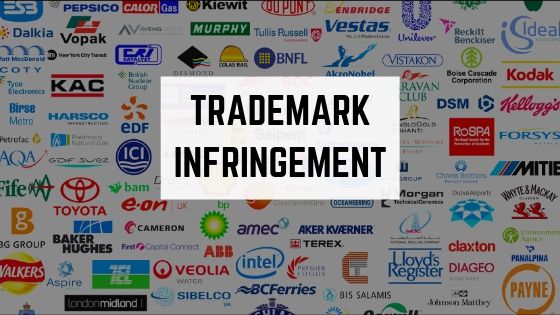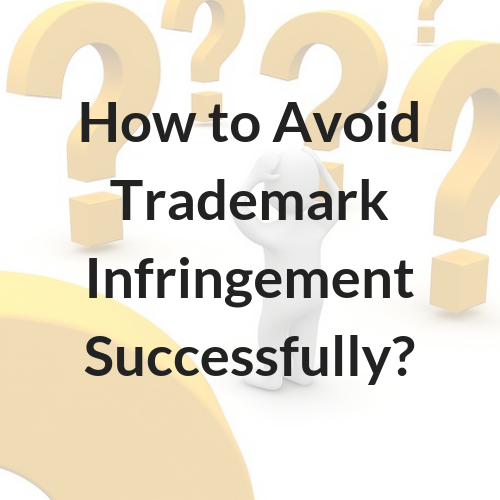Trademark Infringement and Passing off of Two Letter Marks with Examples
Trademark infringement and passing off of Two letter marks
On a thoughtful consideration of the rival contentions, we are of the prima facie view that the Appellant not being a holder of registered trademark “PP” any case for infringement is made out and thus no injunction is liable to be granted against the Respondent PP Prime Properties in FAO (OS) No. 534/2009 on this count. The only actionable claim by the Appellant being of passing off, there has to be evidence to show that the Appellant is a prior user and has attained exclusively in the mark “PP”. The registered logo of the Appellant in class 14 is not merely “PP” but specifically “PPJ”. The Appellant has filed for registration of its trademarks in a number of classes with the Registrar of Trademarks for the registration of its firm in the name of “PP Jewelers Pvt. Ltd.” and not as “PP Towers” and logo “PPJ” or “PP”. It is to be seen as to whether the goodwill attained by the Appellants in its name “P.P.Jewellers” or “PP Tower” or “PP Designs Estate” has entitled the Appellant to claim goodwill and exclusivity in the word mark “PP” so as to oust others from using it even in the business of construction. As the appellant is not the only user of this word mark “PP”, relying on the decision of the Hon’ble Supreme Court in the case of Reliance industries versus Reliance Polycrete Ltd., we are inclined to hold it in the negative. The Hon’ble Supreme Court in the said decision held : “Reliance has become synonymous with Appellant’s and their group of companies. In the other words the Public or the common man associates the word “Reliance” on with the Appellants and their group companies irrespective of what the field of activity or trade in which it is used. Mr. Nair is quite right that apart from showing that the Appellant-company is incorporated in 1966, very conveniently it is also not stated what activities are carried out by the time the Appellant-company was incorporated, there were already in existence at least 10 Joint Stock Companies with the name “Reliance” as their Corporate Names. As pointed out by Mr. Nair the Bombay Telephone Directory has listed 92 companies or firms with the name “Reliance”. Undoubtedly the Appellant-company is a big company having a large turnover.
In the field or yarns and or threads they may have acquired distinctiveness in order to enable them to get a registered Trademark in Class-23. However, there is no material or evidence to show that the word “Reliance” is associated by the public only with the Appellants or their group Companies in all fields of activities or traders. All the cases cited by Mr. Tulzapurkar were the cases where the word was not a common English word but an invented word which has come to be associated with the Appellant-company. Those cases could therefore have no application to the present case, when the word is a common word in English Language and where no material is placed before the Court to show that in all fields of activities or trades it has come to be associated only with the Appellants or their group companies. In my prima facie it does appear to be a case of too much self-importance given to themselves by the Appellants. Fact that so many joint stock companies and firms, having word “Reliance” as their Corporate or firm Name exist belies case that public or common man associates the word only with the appellants or their group companies, no matter what the field of activity”. With regard to the letter marks observations in the case of British Petroleum Company Ltd. versus European Petroleum Distributors Ltd. are relevant: “In considering whether or not the mark is “inherently adapted” to distinguish the goods it is relevant to ask oneself whether and to what extent if the proposed mark was not given a statutory protection, other producers of the goods would be likely in the normal course of events to wish to use the trademark themselves. In the case of a mark consisting simply of letters of the alphabet the answer to this question must depend to a large extent on the number of letters and the rarity of the combination. In the “W.G.” case decided under the Act of 1905, the House of Lords considered the question in relation to a two-letter mark consisting of two common initial letters, W. & G. There the user was proved for some five years, but only in the London area. Registration was refused, but as I read the judgments and in particular the speech of Lord Parker that was not because the letters W. & G. were thought to be so inherently unadapted to distinguish the goods in question (taxi cabs)as to make registration in principle impossible, but because the user proved, especially as regards area, was thought not to be enough to justify registration in principle impossible, but because the user proved, especially as regards area, was though not to be enough to justify trademark registration in a case where the inherent distinctiveness of the mark was so slight. In Kerly on Trademarks, it is said that since the W. & G. case, two-letter marks are not registered. This case shows that as a mere matter of fact that is not so; but further I do not think that it is right to say that no two-letter mark ought ever to be registered. Of course, if the letters constitute a common combination, as they do in this case, the mark ought only to be registered on proof of user for a substantial time over the whole country, but no doubt proof of such user given when the first B.P. Mark was registered in 1921.
Observations from Kerly’s law of Trademarks and Trade names are also relevant: In considering all of the authorities below, it must be borne in mind that they were decided in relation to passing off or under older Trade Mark Acts, with the said, the general principles are as follows:
- It must not be assumed that a very careful or intelligent examination of the trademark will be made;
- But on the other hand, it can hardly be significant that unusually stupid people, “fools or idiots”, or a “moron in a hurry” may be deceived.
- If the goods are expensive or important to the purchasers and not of a kind usually selected without deliberations, and the customers generally educated persons, these are all matter to be considered.
- If some parts of the mark are common, one must consider whether the people who know the distinguishing characteristics of the opponents trademark would be deceived.
The crucial tests to be applied for judging an infringement action or a passing off action in the field of medicinal and pharmaceutical preparations remains the same as are applicable to other goods. However, in the case of preparations trading whereof is governed by statutory rules or regulations, additional considerations become relevant. They are i) the manner in which the trade as carried on, such as sales being made only by authorized or licensed vendors who will be educated, also having special knowledge of medicines and pharmacy; ii) the class of persons who would be the purchasers, whether they would be accompanied by doctor’s prescription and would in all probability remain in touch with doctor while consuming the medicine purchased. The court would ask – Is there such a similarity between the two trademarks that a doctor or a chemist or the both by some carelessness in expression, some obscurity in hand writing, some slip of recollection or some careless mistake not expected of a trained professional like doctor or chemist might lead to the one being confused for the other?.
Regard shall be has not to the hypothetical possibilities but to ordinary practical business possibilities as applied to the circumstances of an individual case. The decision on the question of likelihood of deception is to be left to the court. Nobody can claim exclusive right to use any word, abbreviation, or acronym which has become publici juris. In the trade of drugs it is common practice to name a drug by the name of the organ or ailment which it treats or the main ingredient of the drug. Such organ, ailment or ingredient being publici juris or generic cannot be owned by anyone for use as trademark. Whether such feature is publici juris or generic is a question of fact. If the two trademarks by two competing traders use a generic word or an expression public Jurisdiction common to both the trademarks it has to be seen if the customers who purchase the goods would be guided by the use of such word expression or would ignore it and give emphasis to prefixes or suffixes or words used in association therewith. The primary question to be asked is what would remain in the memory or customer? The surrounding circumstances such as the presentation of goods, color scheme and lettering style etc., used on the packing also assume significance”.
It is clear that the business activity involved in the present case is office spaces and show rooms etc. in shopping malls. The properties sought to be purchased by the buyers are highly expensive and would require thorough inquiries and various rounds of negotiations before entering into agreements and thus the likelihood of deception is minimal. In the present case, the learned Single judge has sufficiently protected the interest of the Appellants by directing the respondents to maintain the accounts of volume of business conducted by each of them during the pendency of the suits and file half yearly statements in this court. It is well settled that in an intra-court appeal, this court would interfere with the judgement of the learned judge and disturb the findings only if the same are perverse.
For Trademark Registration in Coimbatore -> Click here

